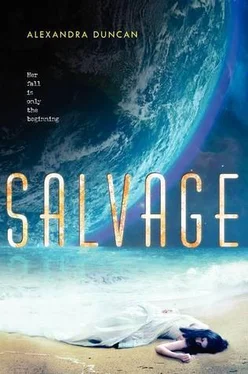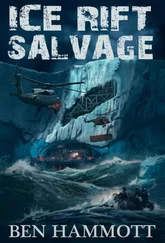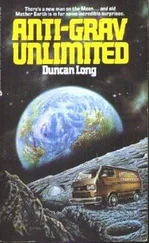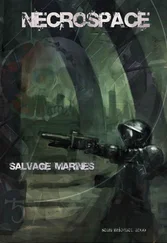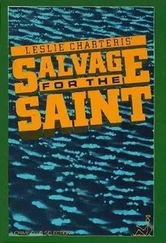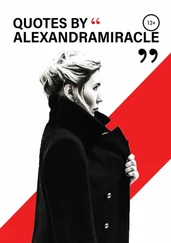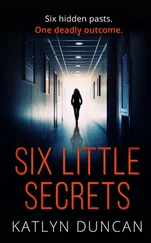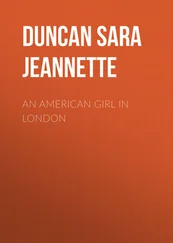I nod and swallow to clear my throat. Iri, the blood on her teeth. “The so doctor’s daughter. She’s my blood modrie. My mother’s sister.”
“Your tante?” Perpétue raises her eyebrows. “That’s good. That’s close family.”
I shake my head. “Not really. I never met her. Or, well . . . she never met me.”
Perpétue leans back in her chair. “But you know her name. What was it?”
“Soraya Hertz,” I say carefully. “But I don’t think she knows about me.”
“You know where she lives?”
“Mumbai?” I say.
Perpétue waits. When I don’t say more, she leans forward in the chair again. “That’s it? Just Mumbai?”
I nod.
“No street or neighborhood or quarter?”
I shake my head.
Perpétue sighs and works her tongue around the inside of her bottom lip, eyes on the fan blades spinning in the breeze. “Anything else about her? Anything to help us track her down?”
“She’s some kind of doctor,” I say. “And my grandfather, her father, he was a doctor, too.”
“Do you know his name?”
“He was Hertz, too,” I say.
“And your tante never married? Never changed her name?” Perpétue rubs her hands together, deep in thought.
Panic strikes me. What if she’s changed it? What if it isn’t enough to track her down?
“I only saw her the once, some ten turns back,” I say. “Do you think we can find her?” If Iri were here, she would know what to do.
Perpétue shakes her head. She rests her forehead on her hands. “I don’t know, Ava.” She looks up at me again. “Mumbai’s a city of a hundred and seventy-five million. Add to that, we don’t know if her name’s the same, or even if she’s still there.”
One hundred seventy-five million. It’s a number so large my mind can’t grab hold of it. My crewe numbered a slip over two hundred, the Æthers somewhere near five hundred. I don’t think I’ve seen more than one or two thousand people in all my life, counting my time at the station concourses. Any number bigger than that might as well not be real. I fix my eyes on the dark square of sky beyond Perpétue’s shoulder and hug my sides, willing myself not to cry. I want to go back to sleep, to dream of Luck and the private glow that surrounded us after we sealed ourselves. Or better yet, not to dream at all.
“But we’ll try, Ava.” Perpétue grips my hand, bringing me back. Her fingers are strong. She presses so hard it hurts. “We’ll try.”
“G ood, now once more.” Perpétue holds my arm as I take another shuffling step.
I moan as I bring my foot forward and let my weight fall on it. My legs burn as though someone’s poured fuel into them and set them alight. But I’ve made it from my cot almost all the way to the small cleanroom tucked away between the common room and the sleeping quarters Perpétue and Miyole share. Perpétue has given me my own skirts again, stiff from drying in the sun, but she burned the rag shirt. I wear one of her soft, thin-woven shirts instead. Cotton, she says, from over the sea.
Two weeks awake in her home and I still cannot walk alone. But I haven’t bled either, at least there’s that to hold on to. The chance of Luck’s child. The air hangs thick with heat and waiting.
This East Gyre Perpétue brought me to is nothing like what I thought Earthside would be. My modries all told stories of dust and cold so fierce it made the Earth white, but here the air is always wet and warm, like the dyeroom when the pits are at full boil. Sometimes Perpétue’s house bobs and rocks under my feet, and a moaning noise shudders up from below.
The Gyre is a floating city, Perpétue says, cobbled together from flatbed ships, buildings raised on pontoons, and abandoned research flotillas. She talks on it as I practice walking, to keep my mind off the pain. Deciturns on deciturns ago, even before the time of Candor and Saeleas, the groundways folk thought the sea would gobble up all their waste, so they fed it into the deeps. But instead, it ended up here, where the waters converge in the Gyre, and formed a vast plain of bottles and bags and milky plastic.
“Some of the first ships came to study the island the trash made and the microbes in the water,” Perpétue explains. “But then, when the Floods drowned the Earth’s islands, other people fled here to make a new life, trawling the garbage. That was the start of the Gyre.”
Microbes? I want to say, but I need all of my breath to keep walking.
Perpétue’s house nestles up to the edge of the Caribbean Enclave, lashed to other craft from the lost islands of Jamaica and Cuba and Haiti, what was her ancestors’ home. But there’re folk from every sunken island here, the ice lands and the Philippines and the land of no serpents. She says a body can make a living scavenging and reselling the bits of plastic that make up the Gyre plain. There’s so much the whole city can pick and pick at it and never run out.
“When you’re well, you can go out and see for yourself,” Perpétue says.
But that would mean facing all the stares and the same questions Perpétue and Miyole had for me, again and again. What’s wrong with your skin? Why can’t you walk right? What’d you do to make your own people throw you out? Just thinking on it makes me want to lie down.
“Don’t forget to bend your knees,” Perpétue reminds me.
Miyole clomps by in a pair of ragged-edged pants, rubber shoes a size too big, and a faded flower-print dress. She carries a danger-red kite almost as tall as she is.
“Bye, Manman!”
“Miyole?” Perpétue drops my hand. “Where are you going?”
“Kite flying with Kai.”
Perpétue bites the corner of her lip. “You aren’t going down to the brink, are you?”
Miyole drops her shoulders. “Manman.” She draws the word in a groan.
Perpétue sighs. Even with the short time I’ve been here, I’ve already caught on they’re about to have the same argument as always.
“You know how I feel about the brink, ma chére.”
Miyole rolls her eyes. “Nothing’s going to happen to me, Manman.”
“You tell that to Bjarni’s mother.”
“You never let me do anything.”
“I never let you do anything dangerous.”
“Manman.” Miyole’s voice teeters between a plead and a whine. “I’ll be careful, I swear. Kai needs me. His dad’s sick again, and Song and Hobb and me all promised we’d help him keep up with the picking. We’re flying kites after.”
Perpétue sighs again, in resignation this time. “All right. Go. But don’t forget to make Kai give you a hook. I don’t want you reaching down in that water with your bare hands.”
Every morning I watch from the window as a trickle of smallones skip the gaps between the pontoons and climb over the footbridges, on their way down to the brink, where they’ll help their parents fish out a living from the plastic. Not all of them go. Miyole doesn’t, except when she wants. Most mornings she either makes more metal creatures or sits with her tablet, staring and tapping into its light, stopping only to help me walk to the cleanroom or make me take calcium pills to keep my muscles from seizing.
This whole place is a mystery. Perpétue has no man in the house, so she earns her keep ferrying packages from groundways to the station, and between cities here below. Yet she washes and cooks and pushes Miyole to keep pace with her lessons each evening, and even sometimes cooks more for the sick woman with two smallones on the craft next to ours. I asked once where her husband was, but Perpétue’s face went masklike. I haven’t asked again.
Читать дальше
